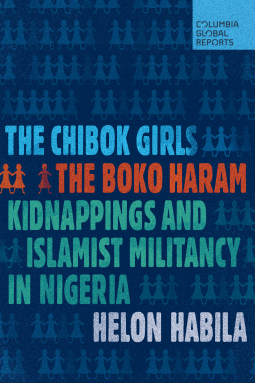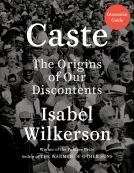
The Chibok Girls
The Boko Haram Kidnappings and Islamist Militancy in Nigeria
by Helon Habila
This title was previously available on NetGalley and is now archived.
Send NetGalley books directly to your Kindle or Kindle app
1
To read on a Kindle or Kindle app, please add kindle@netgalley.com as an approved email address to receive files in your Amazon account. Click here for step-by-step instructions.
2
Also find your Kindle email address within your Amazon account, and enter it here.
Pub Date Dec 05 2016 | Archive Date Dec 05 2016
Description
Fifty-seven of them escaped over the next few months, but most were never heard from again.
On April 14, 2014, 276 girls from the Chibok Secondary School in northern Nigeria were kidnapped by Boko Haram, the world's deadliest terrorist group. Most were never heard from again. Acclaimed Nigerian novelist Helon Habila, who grew up in northern Nigeria, returned to Chibok and gained intimate access to the families of the kidnapped to offer a devastating account of this tragedy that stunned the world. With compassion and deep understanding of historical context, Habila tells the stories of the girls and the anguish of their parents; chronicles the rise of Boko Haram and the Nigerian government's inept response; and captures the indifference of the media and the international community whose attention has moved on.
Employing a fiction writer’s sensibility and a journalist’s curiosity, The Chibok Girls provides poignant portraits of everyday Nigerians whose lives have been transformed by extremist forces. Habila illuminates the long history of colonialism—and unmasks cultural and religious dynamics—that gave rise to the conflicts that have ravaged the region to this day.
“In rescuing the Chibok tragedy from ‘mythic status,’ Habila’s unusual primer quietly yet powerfully revives the call to take notice.” —The Atlantic
A Note From the Publisher
Marketing Plan
Helon Habila will be doing events in Washington, D.C., New York City, and Boston as well as print, radio and television interviews.
Available Editions
| EDITION | Other Format |
| ISBN | 9780997126464 |
| PRICE | $12.99 (USD) |
| PAGES | 128 |
Links
Average rating from 29 members
Featured Reviews
 Patricia R, Reviewer
Patricia R, Reviewer
Helon Habila trained as a journalist in Nigeria where he grew up. He is now a celebrated prize-winning novelist residing in Virginia, where he teaches. He’d read the stories of the April 2014 Boko Haram kidnappings of schoolgirls from Chibok and thought that perhaps there were some clues missing. How had this happened and why haven’t the girls been found?
Searching for clues in country, it must be said, sounds terrifying and risky. Boko Haram as an organization has the madness of a wounded animal and so is exceedingly dangerous. It is also profoundly anti-democratic and filled with a religious fervor Islamist scholars say has nothing to do with Islam. When the Boko Haram’s founding leader Yusef was killed by government security forces, the man who took over was even less stable and more brutal.
Government forces under the presidency of Goodluck Jonathan, it turns out, did not put much credence in the veracity of kidnapping claims. Nigeria was to host the World Economic Forum the following month, and Goodluck Jonathan was convinced political opponents were trying to sabotage the event.
None of which explains why the government wasn’t able to make a larger effort to find the girls after the forum. Goodluck Jonathan lost the presidency they following year, the first time in Nigeria’s history an incumbent lost to a challenger. His incompetency and corruption in office may have been a factor.
The road Habila travelled to get to Chibok was pocked with exploded ordnance and littered with large shell casings. He was in a convoy with military trucks in front and at back, mounted with machine guns, with armed motorcycle outriders on the sides of his vehicle. They drove very fast and quiet, past abandoned villages whose buildings had been shattered with bullet holes or burned down. Rotting firewood was still stacked where it had been placed by farmers before everyone left.
What he ultimately discovered is, as he describes it, shockingly banal: some of the kidnappers were often hostages of a sort themselves. Ordinary boys in dirty shirts and slippers, shooting at whatever they were told to shoot at. Some of the girls managed to escape, but their story is devoid of magnificent acts of heroism or valor. They ran away in the night.
Habila’s investigation reminded us that ordinary people are capable of the most extraordinary cruelty and kindness. We just have to decide which it will be for ourselves. It requires attention, to make sure we do not stray into believing that we, as individuals, do not matter.
Habila sees the roots for the development of Boko Haram in government mismanagement of the 1970’s, when oil money did not translate into a better life for more educated citizens, but in the “cornering” of state money and privilege for personal use. Small, innocuous opportunities to feather one’s own nest and look the other way opened the door to division, discontent, and hardline religious fervor which rejected secular leadership ("democracy is a challenge to God's sovereignty") and every other religion but the “one, true” religion.
Nigeria may seem distant with its dirt roads, searing heat, and sand-filled Sahara winds but these folks have seen that transition from budding democracy to its charade. And these are lessons every nation can take to heart.
Habila’s reporting centered on interviewing the girls who escaped, some of whom managed to be protected in the U.S. under the care of a concerned citizen. One managed to attend and finish high school and is anticipating college entrance, but most were ill-prepared for the U.S. education system. The Nigerian government then revoked the agreement the parents had with the benefactor in the U.S. and the government took over guardianship of the girls.
The girls he interviewed who stayed in Nigeria have continued their educations, though not in Chibok, which remains almost a dead zone. The vibrancy of the area is almost completely gone, the area isolated and remote now that surrounding towns are deserted.
It seems a small story, almost pathetic in its simplicity. We want to hear of success, not failure. We want to know more about the difficulties in finding the remaining girls and why, with even foreign help, the Nigerian military hasn’t been able to beat this seemingly discreet problem. But we will have to wait. That is a story for another time.
This book is in pre-production and will be released in December 2016 by Columbia Global Reports. Thanks to CGR and Netgalley for an advance copy.
 Susan R, Reviewer
Susan R, Reviewer
Chibok is a poor and neglected town in Nigeria, where much of the population work in agriculture and life was fairly uneventful in this obscure corner of the country, until an event which brought it to the world’s notice. On the 14th April, 2014, members of Boko Haram kidnapped 276 schoolgirls. Less than fifty managed to jump off the vehicles which they were loaded into. Only one other girl has been rescued. The rest, tragically, are still missing.
Author , Helon Habila, travelled to Chibok; a town in lockdown since the events of 2014. While telling the story of the terrible events in Chibok, he also explains the current political situation in Nigeria. The checkpoints, the roadblocks, the schools burnt down in local villages he passes through, the villages abandoned, the ethnic and religious divisions, intolerance and corruption are all shown without emotion and are the more shocking for the journalistic style.
Boko Haram is the nickname for a group named Jama’atu Ahlis Surina Lidda’awati Wal-Jihad, or “the people committed to the propaganda of the Prophet’s teachings and Jihad,” which was founded by Mohammed Yusuf. With such a long name, they presumably needed a shortened version; Boko Haram, which means (loosely translated), “Western education is abhorrent.” Indeed, two months before the attack in Chibok, Boko Haram terrorists invaded the Federal Government College, killing fifty nine young boys. It was a chilling rehearsal for Chibok. Previously, the terrorists had been robbing banks; but as they were pushed back into the forest, kidnapping became an easier way to make money, as well as providing women to cook, clean and to act as ‘wives.’ One of their main aims is to stop education, especially that of girls.
Habila explains the history behind the events and he also shows the impact that they have caused. Not only to the parents of the girls; many of whom have suffered physically, mentally and even died after the loss of their daughters, but also to the community and families. One of the most shocking parts of the book, though, comes when he interviews three of the girls themselves and they tell their story in such a straight-forward way. Even more shocking though, was (and is) the political inactivity after the girls were taken. In fact, one minister erupted when being interviewed on television, so incensed was he about being questioned about the missing girls. It seems almost impossible that such a terrible thing as young girls being taken by force, for no other reason than wanting an education, has simply been ignored by the government of the country that is meant to protect them.
This is an extremely important read. It gives a good background to the political situation in Nigeria and explains, without emotive language, but in a very moving way, the events in Chibok. He also tells of those, such as the Education Must Continue Initiative, who are fighting against Boko Haram and who helped some of the girls who did escape that day. The people Habila interviews are so remarkably stoic that I have to say I was astounded, tearful and extremely angry at the end of this book. A very moving read, which I highly recommend. I received a copy of this book from the publisher, via NetGalley, for review.
 Kim C, Educator
Kim C, Educator
The Chibok Girls chronicles one author’s journey to Nigeria to find out more about this tragic event. Helon Habila is an author, lecturer, and professor, who was originally from Nigeria. For this book, he travels back to the country he has not visited in 20 years to talk to the families of the missing girls. He gains unprecedented access to the town and the families to bring us this book.
He tells us how Boko Haram originated and how failures at the government level led to their rise to power. The people who will talk to him do so secretly, for fear of reprisals. The town of Chibok is guarded and no journalists are allowed inside. No one is allowed inside the school buildings where the kidnappings happened. We get a picture of a country in turmoil and a people living in fear.
The author interviews families, as well as some of the girls who managed to escape. The others have never been heard from again.
The book is relatively short, but tells the story completely. It is written in an easy-to-read style. The story is organized well and told at a good pace so that there are no slow parts in the book. Background information is given so that a reader who is unfamiliar with the situation can understand exactly what happened and what led up to it.
I enjoyed this book and hope that someday, the girls will be returned to their grieving families.
Readers who liked this book also liked:
Kyle Thiermann
Biographies & Memoirs, Nonfiction (Adult), Parenting, Families, Relationships


















